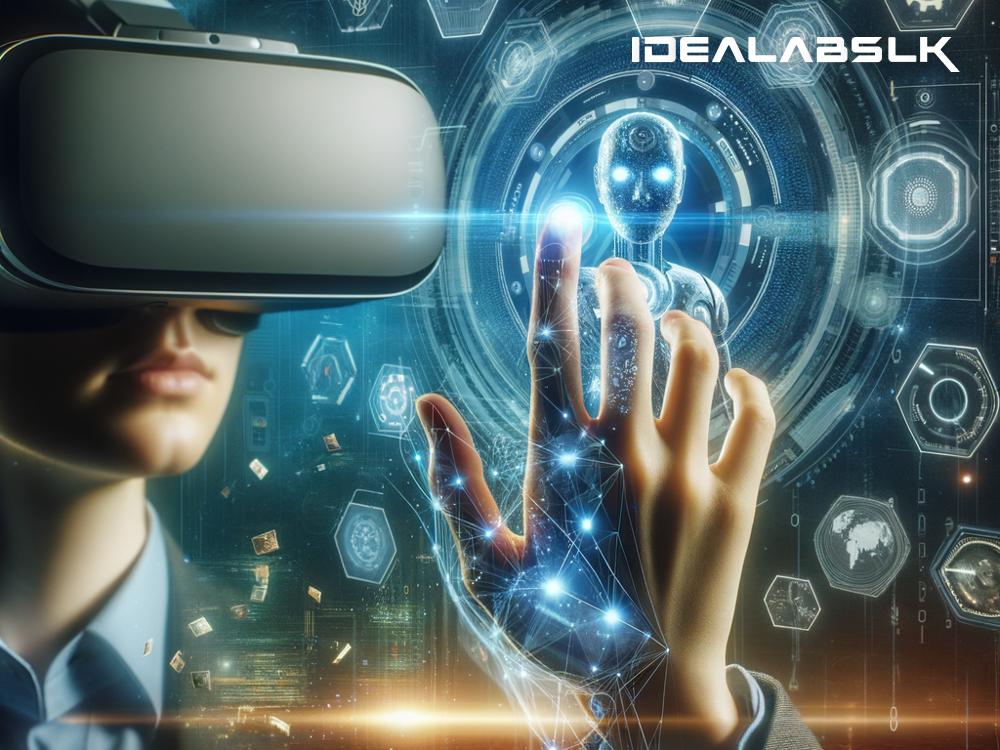AI in Advanced VR Headsets: Enhancing Immersive Experiences
Imagine stepping into a world that only existed in your wildest dreams. A world where you can climb the highest mountains, explore the depths of the ocean, or even travel across the universe, all from the comfort of your home. Virtual Reality (VR) is making these experiences possible, and with the integration of Artificial Intelligence (AI), these immersive experiences are getting even better.
VR headsets have been around for a while, immersing users in digital environments through visual, auditory, and sometimes even tactile feedback. However, as technology evolves, the line between reality and virtuality is becoming increasingly blurred, thanks to the infusion of AI into these advanced VR headsets.
What is AI, and How is it Impacting VR?
AI, or Artificial Intelligence, refers to the simulation of human intelligence in machines that are programmed to think like humans and mimic their actions. When it comes to VR, AI is playing a crucial role in making virtual environments more realistic, interactive, and personalized.
Personalized Experiences
One of the most exciting impacts of AI on VR is the ability to create personalized experiences. Imagine a VR game that adapts to your skill level, becoming more challenging as you improve, or a virtual world that changes based on your preferences and interactions. AI algorithms analyze your behavior and preferences to tailor the virtual environment to suit you, enhancing your overall experience.
Enhanced Interactions
Interacting with virtual environments and characters is central to the VR experience. AI is making these interactions more natural and intuitive. For example, AI can enable virtual characters to understand and respond to voice commands or gestures in real-time, making the virtual world feel more alive and responsive.
Smarter Virtual Characters
In many VR applications, such as gaming or training simulations, you interact with virtual characters. AI is making these characters smarter, enabling them to behave more realistically. They can now adapt their actions based on the situation, providing a more dynamic and engaging experience. Whether it's an opponent in a game adjusting their strategy to counter yours or a virtual instructor providing personalized guidance, AI is making virtual characters more lifelike.
Immersive Learning and Training
VR, powered by AI, is revolutionizing learning and training. Imagine practicing a surgical procedure in a highly realistic virtual environment where the virtual patient reacts just like a real one would. Or, think about a virtual engine that you can take apart and reassemble, with AI guiding you through the process based on your learning pace and style. These immersive experiences make learning more effective and engaging.
Challenges and Concerns
While the integration of AI in VR headsets offers numerous advantages, it also comes with its set of challenges. Privacy and data security are significant concerns, as personalized experiences require collecting and analyzing user data. Ensuring this data is protected is paramount.
Moreover, as AI-driven VR becomes more realistic, there are concerns about the potential for addiction or the blurring of lines between reality and virtuality. Addressing these challenges is crucial to fully leverage the benefits of AI in VR.
The Future of AI in VR
The collaboration between AI and VR is just beginning, and the potential is enormous. Future advancements could lead to even more personalized and interactive experiences, with AI understanding not just our preferences but our emotions as well. We might see virtual environments that adapt not only to our actions but to our moods, providing truly holistic and immersive experiences.
Imagine VR headsets so advanced that stepping into a virtual world feels indistinguishable from reality. With the pace at which AI and VR technologies are evolving, such a future might not be too far off.
Conclusion
The integration of AI into advanced VR headsets is enhancing immersive experiences in ways we could only dream of a few years ago. From personalized virtual worlds to smarter virtual characters and immersive learning experiences, AI is fundamentally changing the VR landscape. As we navigate the challenges and harness the potential of this powerful combination, the boundary between the virtual and the real continues to blur. One thing is clear: the future of VR, powered by AI, is full of exciting possibilities waiting to be explored.

